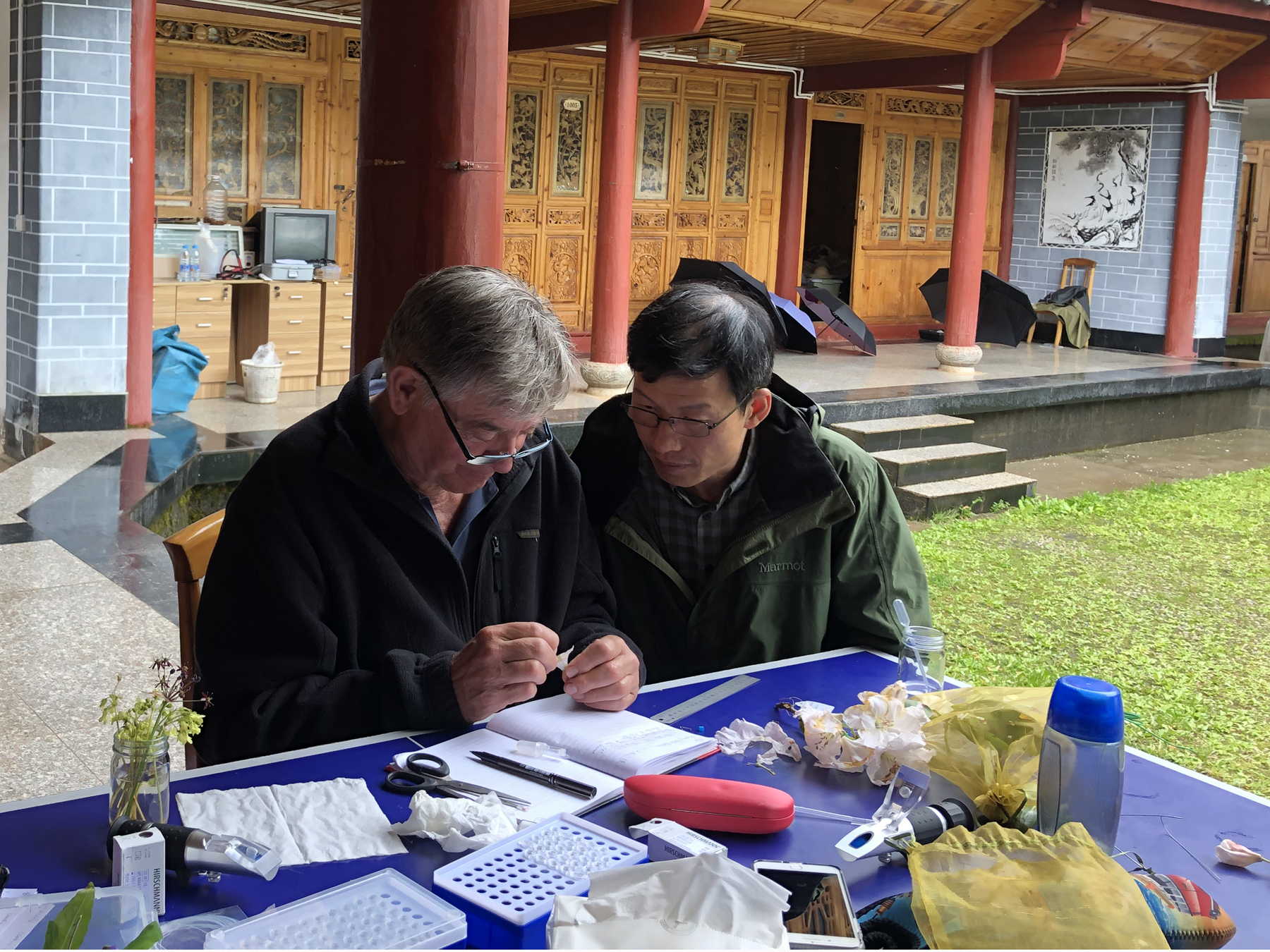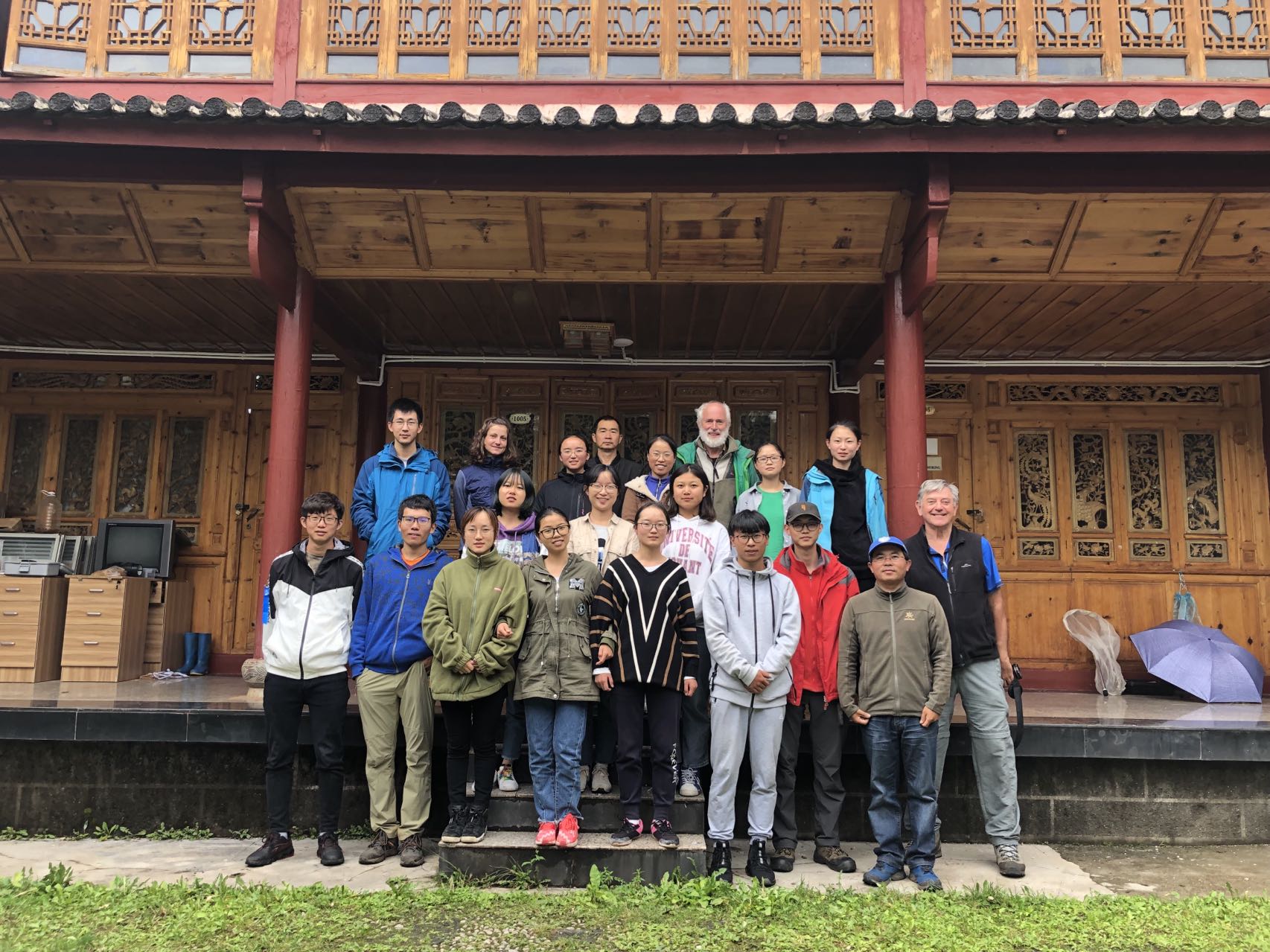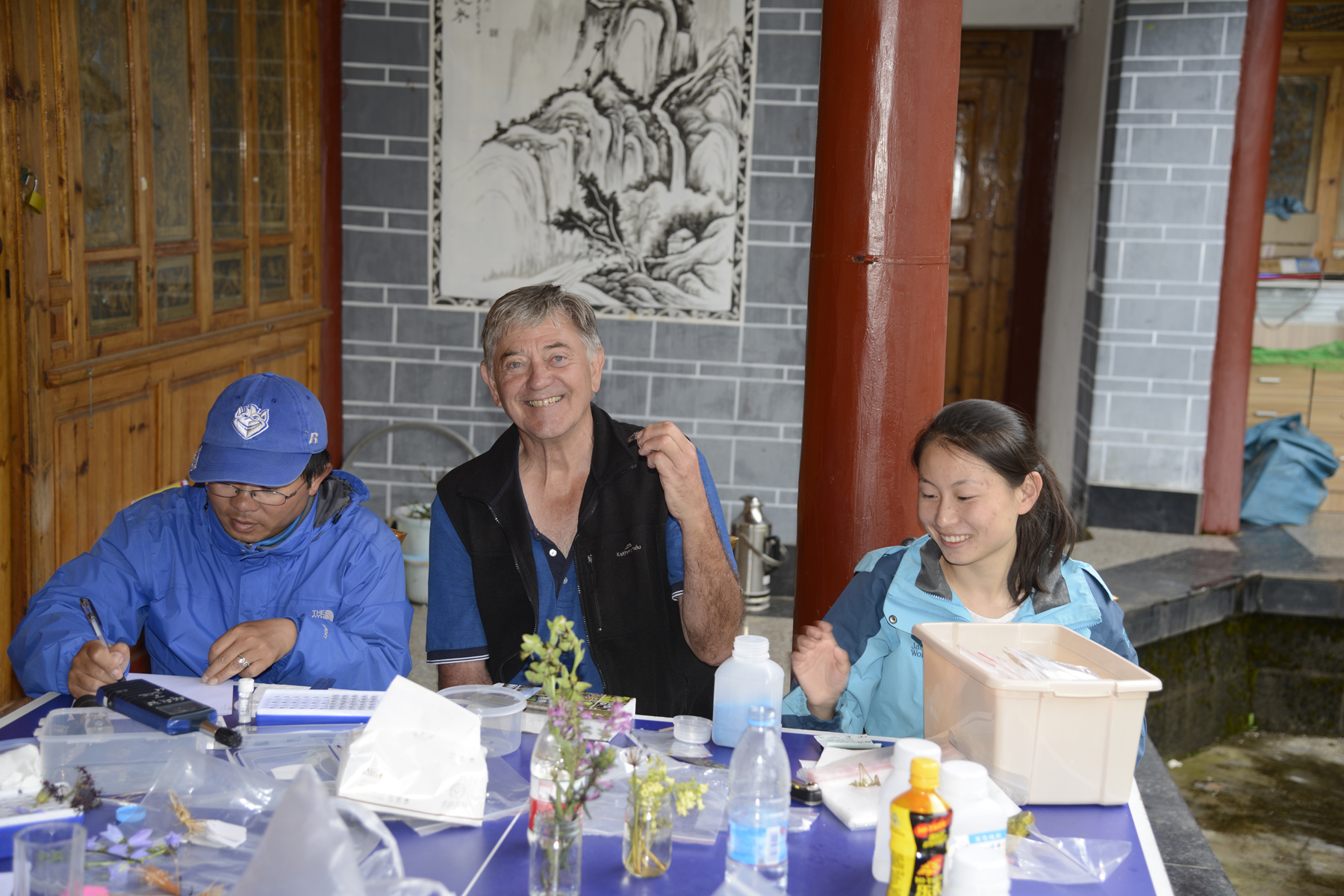My connection with China began a few years ago and has so far resulted in my being funded as a Visiting Scientist under the CAS President's International Fellowship Initiative (PIFI). Prior to my visit to China in 2019, I had never been to Asia, but had established potential collaboration with Associate Professor Zong-Xin Ren. He and I met in Australia on several occasions, confirmed our overlapping research interests, especially in terms of relationships between plants and their pollinators, and began to correspond with each other in relation to these interests. It was apparent to me from the outset that there was both the need and opportunity for us to carry out joint research in China, focusing on plant-pollinator relationships. In this regard, we saw my previous research achievements and experience, especially with Optimal Foraging Theory and with bumblebees and the plants they visit in North America, as providing an excellent base to work from. As a consequence, I successfully applied to be a Visiting Scientist under the CAS PIFI program, and I visited China for two months during 2019.

My time in China was highly productive and enjoyable, and I am extremely grateful for the experience. This time was divided, roughly equally, between the Kunming Institute of Botany (KIB) and the KIB Forest Ecosystem Research Station in the Yulong (Jade Dragon) Snow Mountain near Lijiang, Southwest China's Yunnan Province. We also visited the Baima Snow Mountain area. I was thus able to visit some wonderful parts of China, participate in exciting research, and experience great Chinese food, customs and scenery. I was also able to meet and work with Professor Hong Wang, Professor Dezhu Li and other KIB staff.

I shall describe below our research and its outcomes.
Our research while I was in China focused on relationships between bumblebees and plants, correlations (known as pollination syndromes) between plants and their pollinators in terms of flower color and floral nectar, and relationships between these floral attributes and elevation. This sets the stage to improve our understanding of how climate change has affected, and will continue to affect, plant-pollination biodiversity and function. We also initiated reviews of the published scientific literature regarding plant pollination, with a view to including available information for China. This should help to raise the worldwide prominence of China-based research, researchers and their institutions.
Since I returned to Australia this research program has continued and expanded. Preparation and submission of manuscripts are in progress, including the development of a review of evolution of flower color. Also, our research now includes examination of relationships between flower color and floral nectar. I have also initiated the two collaborative research projects with Associate Professor Ren of KIB.
Consequently, my 2019 research in China, along with follow-up research in Australia, have so far resulted in four scientific manuscripts, two of which have already been accepted for publication, with several more either submitted or in preparation, and many more planned.
Our 2019 research has also led to our development of plans for further research, based both on additional field research in China and on literature-based research.
During my visit to China, I also participated in workshops, gave student lectures and gave one major seminar to KIB staff and students. We included field training for students to learn relevant techniques and statistics. My student lectures were similarly focused. My KIB lecture dealt with research excellence and how to achieve such. I presented my "recipe" for such research success, which has proven valuable in a number of different contexts.

My PIFI-supported visit to China has therefore led to much productive research, the development of strong collaborations with KIB staff and various students, and to a strong desire on my part to continue these collaborations.
In recognition of my new and strong connection with KIB, I have listed KIB as my primary institution on all my manuscripts arising during and since my PIFI-supported time in China during 2019. This includes a number arising directly from my China-based research, as well as ones arising from my other generally-related research.

Nectar research team (Dr. Zong-Xin Ren, Prof. Pyke and an undergraduate student, Yuan Tian from Yunnan University) working at Lijiang Field Station. (Image by KIB)
I would also welcome the opportunity to return to China and to progress our collaborative research there. I would like to see our China-based research flourish and achieve excellence, for all the world to see.
(Editor: Yang Mei)




